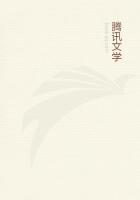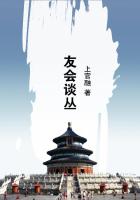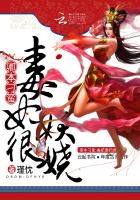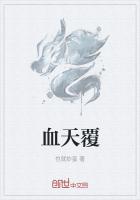He carefully examined the walls on either side of the recess in the library to see how the mechanism worked. The bookshelves were open, made of mahogany, the sides elaborately carved with leaves and flowers. Desmond ran his hand down the perpendicular section immediately on the right of the recess. About halfway down--to be exact, it was in line with the fifth shelf from the floor--his fingers encountered a little knob which gave under pressure--the heart of a flower which released the section of bookshelves.
Going back to the shed, Desmond examined the place against which his hand had rested as he sought to force the lock of the cupboard. As he expected, he found a similar catch let into the surface of the oak, but so cunningly inlaid that it could scarce be detected with the naked eye.
Before proceeding further with his investigations, Desmond softly turned the lock of the library door. He also shot forward a bolt he found on the inside of the door of the shed. He did not want to be interrupted by the housekeeper or the odd man.
Then he went back to the library and pulled the cupboard to behind him. It moved quite easily into place. He wanted to have a look at the bookshelves; for he was curious to know whether the cupboard was actually all of one piece with the section of bookshelves as it seemed to be. He was prepared to find that the books were merely library dummies, but no! He tried half a dozen shelves at random, and every book he pulled out was real.
Desmond was not easily baled, and he determined to scrutinize every shelf, of this particular section in turn. With the aid of one of those step-ladders folding into a chair which you sometimes see in libraries, he examined the topmost shelves but without result. He took down in turn Macaulay 's History of England, a handsome edition of the works of Swift, and a set of Moliere without getting any nearer the end of his quest.
The fourth shelf from the top was devoted to a library edition of Shakespeare, large books bound in red morocco. Desmond, who, by this time was getting cramp in the arms from stretching upwards and had made his hands black with dust, pulled out a couple of volumes at hazard from the set and found them real books like the rest.
"Oh, damn!" he exclaimed, and had half a mind to abandon the search and have a go with hammer and chisel at the cupboard in the shed. By this time it was almost dusk in the library, and Desmond, before abandoning the search, struck a match to have a final rapid glance over the shelves. The light showed him a curious flatness about the backs of the last six volumes of Shakespeare. He dropped the match and laid hold of a volume of the Comedies. It resisted. He tugged. Still it would not come.
Exerting all his strength, he pulled, the gilt-lettered backs of the last six volumes came away in his hands in one piece and he crashed off the ladder to the ground.
This time he did not swear. He picked himself up quickly, lit the lamp on the table by the window, and brought it over to the bookcase. Where Shakespeare's Comedies had stood was now a gaping void with a small key stuck in a lock, above a brass handle.
Desmond mounted on the steps again and eagerly turned the key.
Then he grasped the handle and puled, the section of bookshelves swung back like a door, and he found himself face to face with a great stack of petrol cans. They lay in orderly piles stretching from the floor to the top of the bookshelves near the railing, several tiers deep. At a rough computation there must have been several hundred cans in the recess. And they were all full.
In a flash Desmond realized what his discovery signified. The motor-cycle in the shed without was the connecting link between Bellward and the man with whom he was co-operating in the organization. Under pretext of reading late in his library Bellward would send old Martha to bed, and once the house was quiet, sally forth by his secret exit and meet his confederate.
Even when he was supposed to be sleeping in London he could still use the Mill House for a rendezvous, entering and leaving by the secret door, and no one a bit the wiser. In that desolate part of Essex, the roads are practically deserted after dark. Bellward could come and go much as he pleased on his motor-cycle. Were he stopped, he always had the excuse ready that he was going to--or returning from the station. The few petrol cans that Desmond had seen openly displayed in the shed without seemed to show that Bellward received a small quantity of spirit from the Petrol Board to take him to and from the railway.
The cache, so elaborately concealed, however, pointed to long journeys. Did Bellward undertake these trips to fetch news or to transmit it? And who was his confederate? Whom did he go to meet?
Not Mortimer; for he had only, corresponded with Bellward. Nor was it Nur-el-Din; for she had never met Bellward, either.
Who was it, then?















